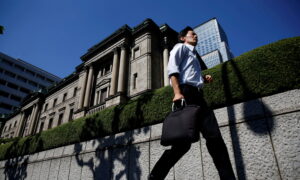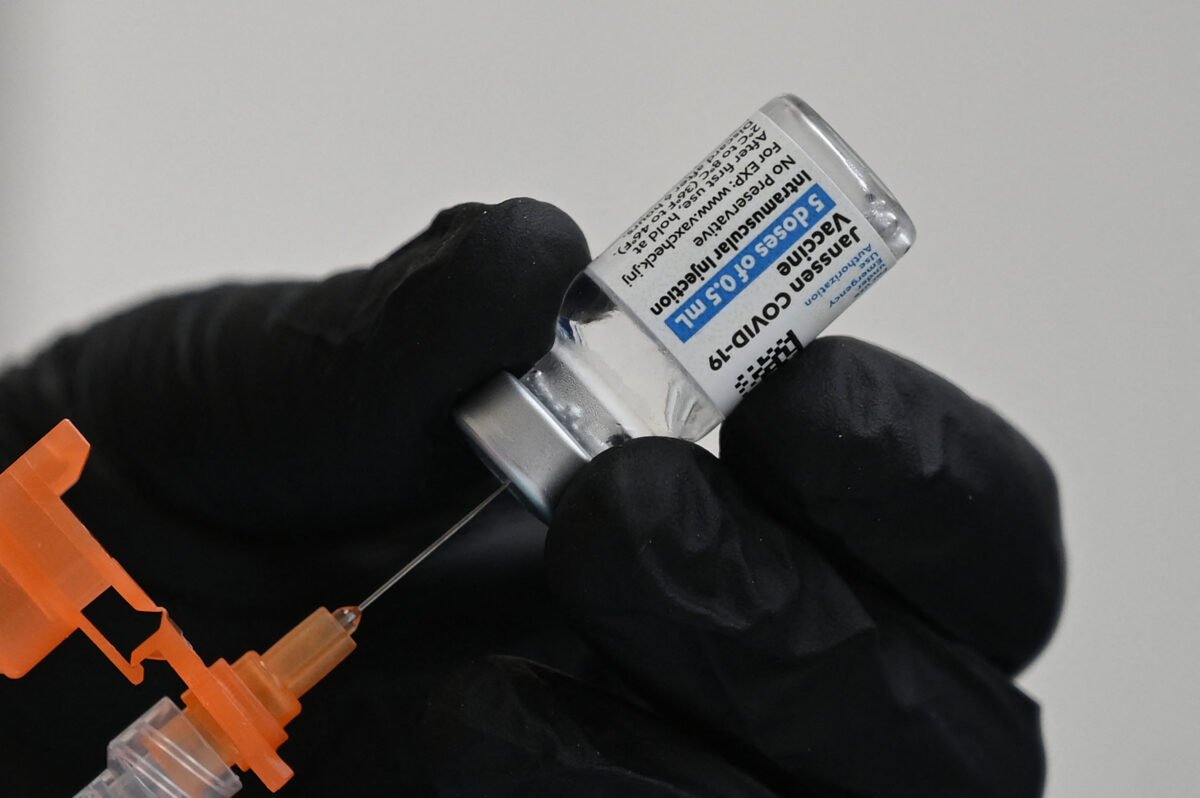Japan’s Consumer Inflation Off 41-year High but Cost Pressure Persists
Distressed Patriotic Flag Unisex T-Shirt - Celebrate Comfort and Country $11.29 USD Get it here>>


TOKYO—Japan’s core consumer inflation slowed in February but an index stripping away energy costs hit a four-decade high, data showed on Friday, suggesting cost-push pressures may persist longer than policymakers thought.
With inflation still exceeding the Bank of Japan’s 2 percent target, the data will keep alive market expectations of a tweak to its bond yield control policy under incoming governor Kazuo Ueda, analysts say.
The core consumer price index (CPI), which excludes volatile fresh food but includes oil products, rose 3.1 percent in February from a year earlier, matching a median market forecast and slowing sharply from a 41-year high of 4.2 percent seen in January.
The slowdown was mostly due to the effect of government subsidies to curb utility bills. Prices of non-energy items like food and daily necessities continued to rise, a sign the pass-through of rising raw material costs have yet to run its course.
“Inflationary pressure remains strong,” said Yoshiki Shinke, chief economist at Dai-ichi Life Research Institute. “Many food producers have announced plans to hike prices further in March.”
Highlighting the lingering cost-push pressure, a separate index that strips away both fresh food and fuel costs rose 3.5 percent in February from a year earlier, accelerating from a 3.2 percent gain in January.
The index, dubbed “core-core” CPI and closely watched by the BOJ as an indicator of price moves reflecting demand, marked the fastest year-on-year increase since January 1982.
The data highlight the challenge the BOJ faces in gauging whether the cost-push inflation will shift to a more sustained, demand-driven price rise—or cool consumption and choke off a fragile economic recovery.
The price and wage outlook will be key to how soon the BOJ can phase out its bond yield control policy under incoming head Ueda, who succeeds Haruhiko Kuroda when his term ends in April.
Ueda has said stronger wage growth must accompany cost-push inflation for price growth to steadily hit the bank’s 2 percent target.
Some BOJ policymakers have flagged the chance inflation could exceed initial expectations, as price hikes and wage gains show sign of broadening.
In closely watched annual labor talks with union earlier this month, top Japanese companies agreed to their largest pay increases in a quarter century in a sign the country may be finally shaking off the public’s sticky deflationary mindset.
However, with global commodity prices having peaked and the yen’s rebound reducing import costs, many analysts share the BOJ’s view that inflation will slow back below its 2 percent target later this year.
The recent market rout caused by the failure of two U.S. banks, and the takeover of Credit Suisse, also complicates the BOJ’s policy path by adding to risks for Japan’s economy.
“The (CPI) numbers are fluctuating due to supply shocks and its repercussion, as well as the effect of government steps to combat rising living costs,” said Yasunari Ueno, chief market economist at Mizuho Securities.
“The new BOJ leadership will scrutinise Japan’s price trend, as well as U.S. and European developments, in deciding its policy move,” he said.
By Takahiko Wada and Leika Kihara




